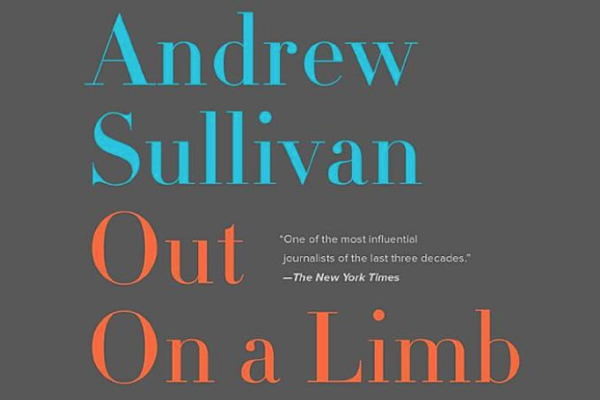
‘Alec’
By William di Canzio
c.2021, Farrar, Straus & Giroux
$27/336 pages
A sequel that’s nearly as good as the original! An intriguing queer love story! What more could you ask for as summer ends?
Today, on and off the page, queers fall in love, have sex, couple up, marry – embrace polyamory – as frequently and openly as politicos trade insults.
But, until recently, you rarely found LGBTQ+ characters in books. With few exceptions, when you encountered queer people in fiction, they were sick, dying, or in jail.
It’s hard to overstate how revolutionary it was for queers when “Maurice” by the queer, British writer E.M. Forster was posthumously published in 1971.
For many of us, it was the first time we read a love story in which queer lovers ended up alive – unrepentant and unpunished.
Forster, who died at 91 in 1970, began writing “Maurice” in 1913 and finished it in 1914. Yet, he felt it couldn’t be published during his lifetime.
Forster’s novels (especially, “A Passage to India” and “Howards End”) were critically acclaimed.
Forster lectured in England and the United States. Listeners heard him on the radio as he read his acclaimed 1939 essay “What I Believe.”
In this essay, Forster spoke of his belief in personal relations, endorsed the humanistic values of “tolerance, good temper and sympathy” and decried authoritarianism.
His assertion in “What I Believe, that “if I had to choose between betraying my country and betraying my friend I hope I should have the guts to betray my country,” has been a credo for many.
Yet, because being queer was illegal in the United Kingdom for most of his lifetime, Forster didn’t want to publish “Maurice” while he was alive.
Homosexuality wasn’t decriminalized in the United Kingdom until 1967.
Though he was out to some of his friends, Forster couldn’t be openly gay because of the homophobia of his time.
“Maurice,” which Forster dedicated “To a Happier Year,” doesn’t just have LGBTQ characters. Its two gay male lovers, Cambridge-educated, upper-class Maurice, and Alec, a gamekeeper, end up happily.
We may worry about what obstacles they’ll run into while living in such a repressive time. But we know that they’ve gone off together.
“A happy ending was imperative,” Forster writes in a 1960 “Terminal Note” on “Maurice,” “I shouldn’t have bothered to write otherwise.”
“I was determined that in fiction anyway,” he adds, “two men should fall in love and remain in it for the ever and ever that fiction allows, and in this sense Maurice and Alec still roam the greenwood.”
Forster’s legacy has had a reemergence in this century. “On Beauty,” the 2005 novel by Zadie Smith is an homage to “Howards End.”
Matthew Lopez’s play “The Inheritance,” which ran on Broadway, is, also, in part, an homage to “Howards End.”
Many sequels, no matter how well-intended, aren’t good. This is even more true when classic novels like “Maurice” are involved.
Yet, in “Alec,” distinguished, gay playwright di Canzio has pulled off an engrossing, lively, moving feat of the imagination.
In “Maurice,” we see things from Maurice’s perspective. On a visit to his friend Clive, a country squire, he meets Alec, Clive’s game keeper.
We know that Alec and Maurice, after both trying to blackmail each other, fall in love. But we learn little about Alec except that he loves Maurice.
In “Alec,” we view things from Alec’s eyes. Alec, in di Canzio’s reimagining, is a three-dimensional character with feelings, ambitions and a back story.
Born in Dorset, England in 1893 to working class parents, Alec loves to read. He knows, because of his class, that he won’t be able to go to college.
But he soaks up as much literature as he can at the library.
He enjoys reading about classic Greek myths and looking at pictures of art depicting the hunky, mythic heroes.
Early on, Alec knows that he likes boys and men. Though there’s no way he can be openly gay, he’s fine with his sexuality.
“It kept him out of trouble with girls,” di Canzio writes.
Following his father in his line of work, doesn’t appeal to Alec. His dad is a butcher. He doesn’t want to become a servant to rich people if he’d have to be at their beck and call inside their house. Knowing that he has to do some type of work, Alec becomes a gamekeeper for Clive, a country squire.
He and Maurice meet when Maurice visits Clive. As in “Maurice,” the lovers, after much angst and bungled blackmail attempts, go off together.
Up to this point, di Canzio is following the plot of “Maurice” – even quoting some of the dialogue from the novel.
In lesser hands, this might seem too plodding or too derivative. But di Canzio’s retelling the story, though a bit slow, is fresh. You want to keep reading.
The lovers live together happily for a time. They can’t be openly gay. Yet, they find people like themselves and LGBTQ-friendly folk in salons, clubs, and other underground queer spaces.
World War I shatters their happiness. Serving under horrific conditions in separate places, Alec and Maurice don’t know if they’ll survive or find each other after the war.
“How many of our stories have been expunged – from history, from memory?” a friend asks the couple.
You’ll keep turning the page to discover how Alec and Maurice’s story ends.







